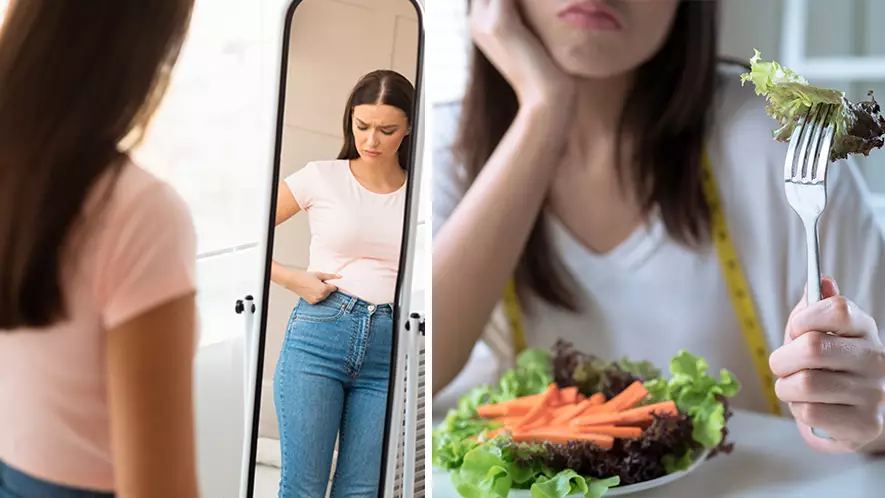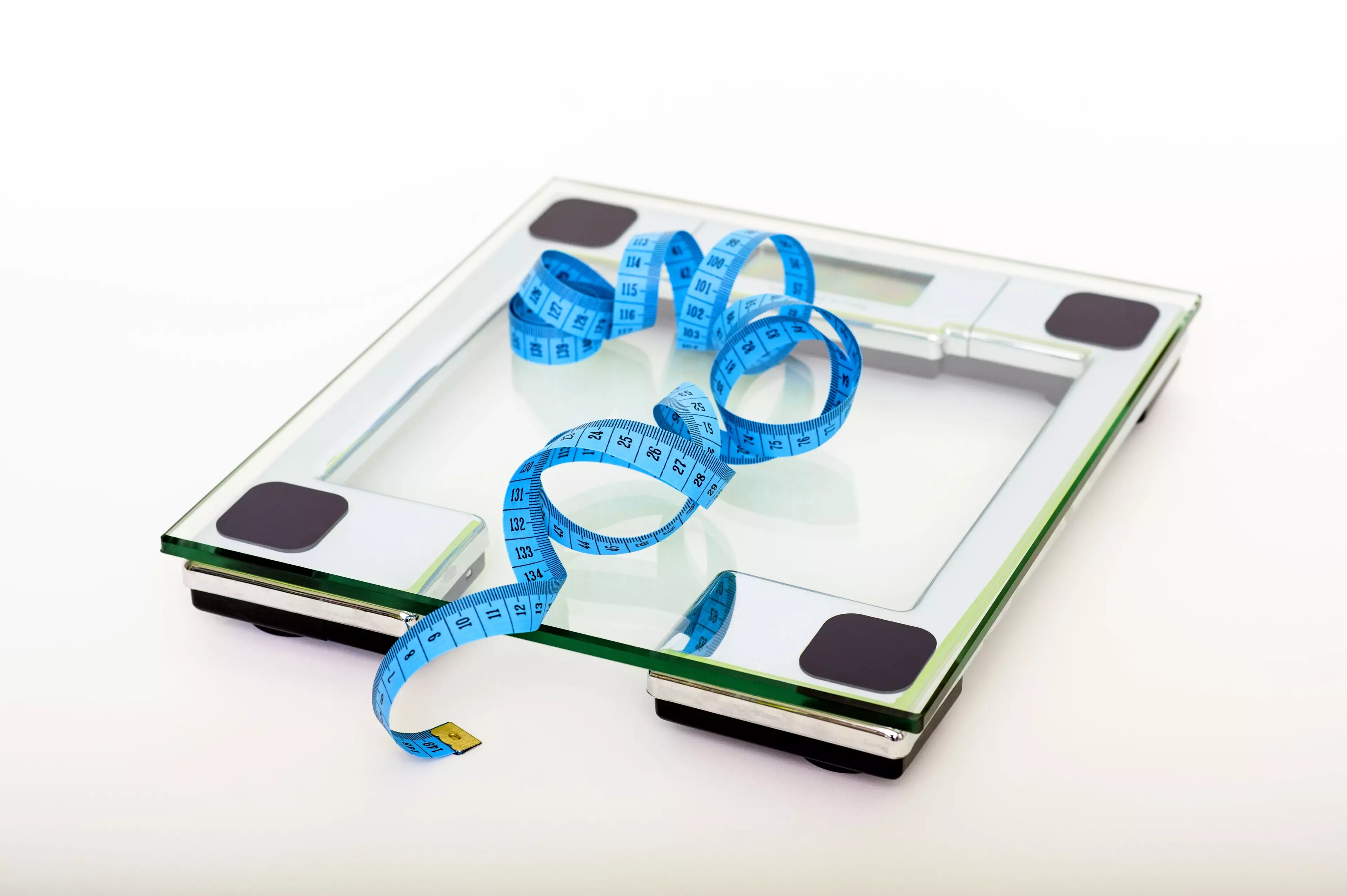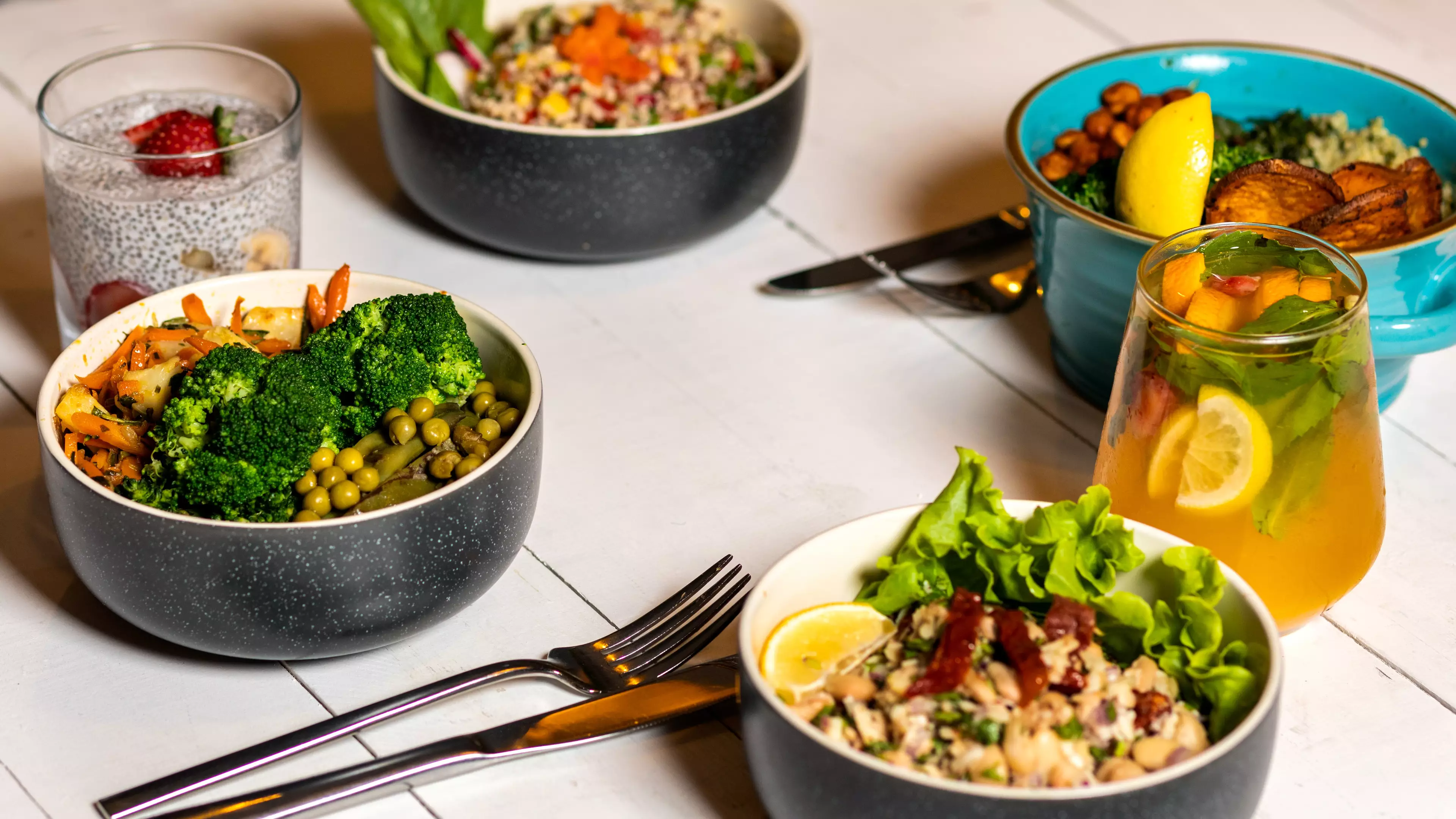
The UK's long and often strict lockdown measures are (fingers crossed) set to be lifted by the end of this month - with club nights, weddings and festivals thought to be full steam ahead thanks to the country's comprehensive vaccination programme.
After nearly a year of being stuck inside in a bid to stop the spread of a deadly virus, some of us may have noticed that we're slightly heavier than we were in March 2020. If you gained a few pounds over lockdown (which is completely fine, by the way, there was a global pandemic, gyms were closed and we were literally stuck indoors), you're not alone. Globally, it is thought around 36 per cent of people gained weight during this period, with people turning to takeaways and alcohol to comfort themselves through an incredibly difficult period.
However, there's a worrying amount of people desperately trying crash diets with social distance restrictions ending, taking to Twitter to discuss rapid weight loss in time for nightclubs reopening.

"Diet for June 21st: coffee and fags only," one person said.
Advert
A second said: "Spinach and broccoli diet until June 21st then switching it up to vodka and tequila until the New Year."
There seems to be a universal acceptance that many of us are heavier than we were pre-pandemic. However, psychotherapist Keeley Tavener believes this new "camaraderie" uniting people on their changing body shape comes with a caveat.

"There's this feeling amongst people that if you're heavier, you're expected to do something about it," she explains to Tyla.
Advert
"Will Smith recently posted that he's put on weight, and the work he's doing to try and get the weight off. There's a pressure when it comes to getting a certain body weight."
Keeley has noticed amongst her clients a growing trend of people, particularly young women, who are desperate to attain a certain body type in time for restrictions easing.
"One young woman told me she was desperate to lose weight, and wanted a particular body shape," Keeley says. "She showed me a picture of a particular actor, who is very thin and tall.

"It's that sense of inadequacy, that their body isn't good enough that is particularly strong at the moment. There's that increased desire to have an unachievable standard of beauty, especially when we're allowed out the house."
Advert
And this urge to lose weight quickly, and the potential dangers of crash dieting for a particular date, leaves Keeley feeling deeply worried.
"There's such an unhelpful dialogue around body image and weight loss," she says. "Social media is so triggering for this, as we see so many people looking an impossible way. We have to think more critically about influencers on the platform. What are they influencing us to do, really?
"I've found lockdown has exacerbated any issues we've previously had with food. The stress of lockdown has seen us seek comfort out of unhealthy behaviours."
And this is made all the more triggering for those who have suffered from eating disorders. Particularly when people share memes and images about their lockdown 'diets' being made up of ice and coffee for the next few weeks.

Keeley adds that, fundamentally, people looking to lose weight often do it for a sense of control.
Advert
"Some people seek to get control over their physical body as a way of combatting something psychologically they cannot control," she says.
"It can also lead to problems when people link weight loss to an immediate happiness and euphoria. In terms of getting the post-lockdown body - I think for a lot of the people is that they may well get there, and then when they don't feel the happiness and the euphoria they hoped for. It's ultimate anti-climax, but losing weight doesn't fix the issues you may be feeling in your head. It just gives people a sense of control when they feel they have limited control."
While wanting to lose weight in and of itself isn't inherently a bad thing, there are ways to make sure it is approached in a healthy manner. Keeley urges those to be mindful about the reasons why they may want to drop a few pounds.
"I think people need to take responsibility in the media you consume, and back away if it's unhelpful," she says. "Some people find themselves obsessing over their FitBits. That's when they need to take them off and not focus so much on that aspect. What sort of influences are they taking in? Are they helpful?

"People need to set a realistic goals when considering changing their body image. If people want to lose weight, it's about being really clear. What do they hope to achieve when they get there? It's about being realistic. How sustainable will it be afterwards? If your goal is 'I'll be happy,' perhaps reconsider.
Advert
"Most importantly, it's about doing things in moderation and in a way it can be sustainable. Too much of anything is bad for you. When weight loss slips overboard into an obsession, and it dominates your life, that's when you need to step back and accept you may need some help."
However, Keeley also wants people to celebrate loving themselves the way they are.
"I'm so grateful for the body positive movement," she says. "It's really refreshing. It's almost a revolutionary act to be happy with your body.
"There's a real strength in self-acceptance and loving yourself just the way you are."
Featured Image Credit: ShutterstockTopics: Life, Food & Drink, Fitness, Health